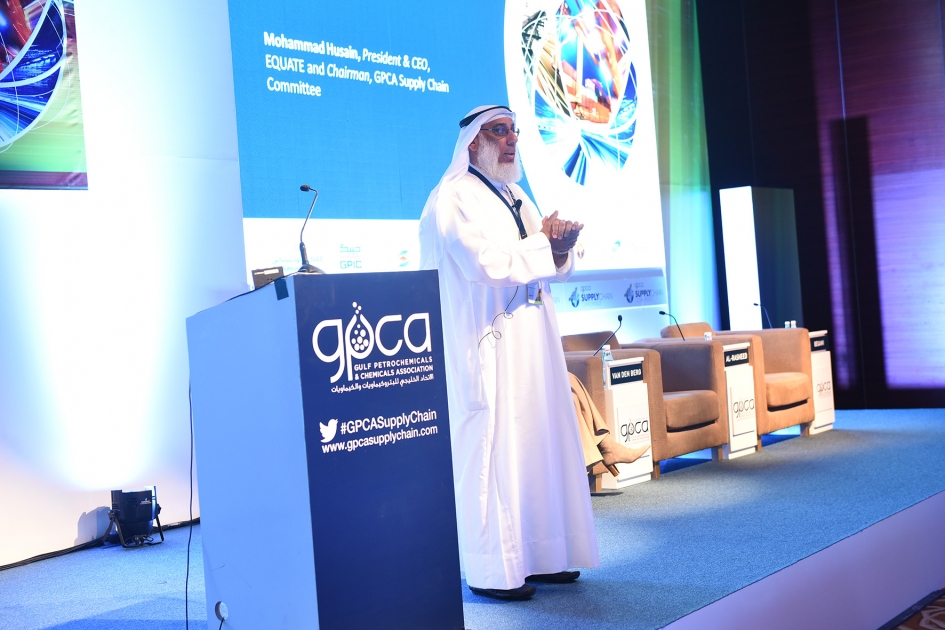
Reliability key for integrated petrochemicals logistics, say speakers at GPCA Supply Chain Conference
Reliability in supply chain and logistics is a crucial value that the GCC petrochemical industry must adopt, said speakers at the 8th GPCA Supply Chain Conference, hosted in Dubai by the Gulf Petrochemicals and Chemicals Association (GPCA).
“As an industry, we will continue to grow, but we need the infrastructure to expand as this is critical to competitiveness,” said Mohammad Husain, President and CEO, EQUATE, and Chairman of the GPCA’s Supply Chain Committee. “We often think of reliability in terms of operational questions - is the plant reliable? Is it producing the right quantity at the right time? But infrastructure that helps get petrochemicals to its customers is also critical to our operations. We need to think of reliability in every aspect of our operations, including in our supply chain.”
As an export-oriented industry, the GCC petrochemical producers traded 70.3 million tons of product in 2015, according to GPCA research. Products like plastics and fertilizers were transported to customers in 166 countries worldwide, rendering the petrochemicals supply chain as one of the longest and most complex in the world.
Critical elements of supply chain reliability include connectivity through technological advancement and human capital, according to Husain.
“Today, connectivity is the name of the game. Our customers expect to know where their shipment is at this very moment and not one month later. Look at Amazon - they can find and reveal where their packages are at every step of the delivery process. Technology is an enabler and we must enhance ours as this will lead to efficiencies. Also, with the rising use of smartphones, this connectivity trend will increase,” explained Husain.
“And our people are crucial. We must ask the important questions: how do we develop our people? Do we collaborate on this project? And are our people ready for this training? For example, look at our universities today. The best performers are women. So our culture needs to find ways to keep making opportunities available to them as these are our brightest minds and leaders of the future,” said Husain.
While the World Bank’s most recent Logistics Performance Index has found that GCC countries are amongst the top 35% performers globally, challenges remain. Along with the emerging infrastructure and human capital shortfalls, port congestion and customs procedures are obstacles in the development of a dynamic logistics industry within the Arabian Gulf.
However, government support for the petrochemicals industry, and its associated support sectors, represents a once-in-a-lifetime opportunity for development, according to the GPCA.
“The recently announced Saudi Vision 2030 has anointed the petrochemical industry as a ‘promising industry’ that enables diversification,” said Dr. Abdulwahab Al-Sadoun. “Along with this recognition, the petrochemical industry has also been recognized for its multiplier impact, enabling development and employment opportunities in support functions like transport, logistics and marketing. Government plans are a strong signal that public support will continue to rely on the chemicals industry. Petrochemicals and its associated industries will continue to expand, with great potential for government investment in the near future.”
The 8th GPCA Supply Chain Conference featured 22 speakers from the region’s petrochemicals industry, logistics providers, management consultancies and academia.


























